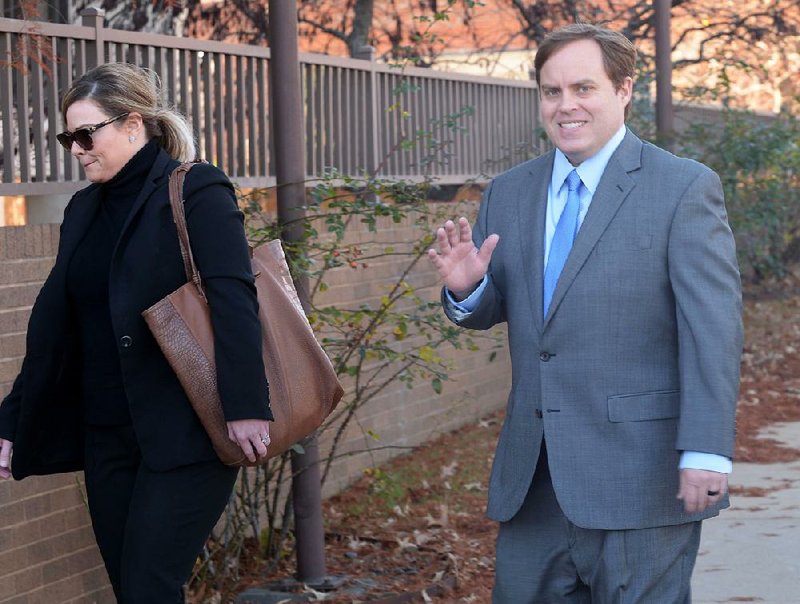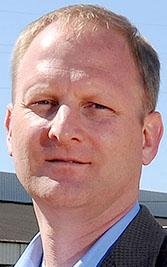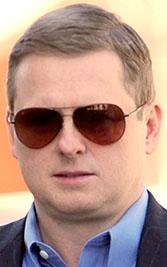FAYETTEVILLE -- A federal appeals court has refused to consider an appeal in the corruption case involving former state Sen. Jon Woods, turning down the defendants' request to dismiss the case before trial begins April 9.
Attorneys for Woods, Oren Paris III and Randell G. Shelton based their appeal on the fact that FBI Special Agent Robert Cessario, chief investigator in the case, had a hard drive of a laptop computer used in the investigation erased after being ordered to turn it over for inspection in a evidence-related dispute.
U.S. District Judge Timothy Brooks refused the defendants' motion to dismiss the charges in a March 2 court order. The appeal to the 8th U.S. Circuit Court of Appeals followed.
"We are disappointed that the 8th Circuit dismissed our appeal for lack of jurisdiction and are currently reviewing our options," said Shelly Hogan Koehler of Fayetteville, an attorney for Shelton.
Paris is president of Ecclesia College in Springdale. Shelton is a consultant hired by Paris, according to the indictment in the case. The U.S. Justice Department alleges that Paris paid Woods and then-state Rep. Micah Neal, R-Springdale, kickbacks in return for $550,000 in state grants from them to his college in 2013 and 2014. The kickbacks were paid through consulting fees Paris paid to Shelton, according to the government's case. Neal pleaded guilty to a conspiracy count on Jan. 4, 2017, for his role but has not been sentenced.
The notice of appeal claimed Brooks' ruling to proceed to trial violated the defendants' rights to due process "due to the bad faith destruction of evidence potentially useful to the defendants by the government."
On Tuesday, a three-judge panel denied the appeal in a two-sentence ruling.
"The court orders that this appeal be dismissed for lack of jurisdiction. The appellants' joint emergency motion for stay pending appeal is denied as moot," the ruling said.
Assistant U.S. Attorney Kenneth Elser argued Brooks' order was not a final decision that could be appealed. The U.S. Supreme Court has found the only pretrial orders that are immediately appealable are orders denying motions to reduce bail and denying motions to dismiss the indictment on double jeopardy or "speech or debate grounds," his motion says.
"The district court's order refusing to dismiss the indictment based on a Fifth Amendment Due Process claim that S.A. (Special Agent) Cessario deliberately destroyed useful evidence is a non-appealable order," Elser wrote. "It does not fit within one of the recognized collateral order exceptions and even if erroneous can be vindicated on appeal after trial."
Brooks' order said while Cessario's actions were wrong, a grand jury issued an indictment against the three defendants and the public has an interest in seeing it prosecuted, just as the defendants have an interest in holding the government to its burden of proof at trial.
"The court would emphasize here that it does not condone Agent Cessario's actions; it finds them reprehensible," Brooks wrote in his March 2 order. "But the public does not forfeit its interest in seeing crime prosecuted simply because one government agent happened to engage in bad conduct along the way."
Brooks said the proper remedy for the Cessario violation was not to dismiss the charges but rather to prohibit the government from calling Cessario as a witness and from introducing taped recordings that were related to Cessario's alleged misconduct.
Cessario will not testify on the government's behalf in the case, federal attorneys said in hearings before Brooks ruled. In another development Tuesday, defense attorneys made a motion to Brooks that Cessario be allowed to testify as a witness to answer questions about his dealings with Neal in the investigation. Neal cooperated with investigators before Woods, Paris and Shelton were charged, according to testimony in hearings in the case.
Brooks noted in the March 2 order that Cessario's actions are being investigated by the FBI's Office of the Inspector General and, depending on the results of that investigation, Cessario could face criminal charges.
Neal made secret audio recordings from March to October 2016, hoping to find more evidence and mitigate the sentence he expects to receive, according to his testimony in an earlier hearing. Neal did this without the government's encouragement or participation, according to prosecutors, but he did inform investigators he was doing it.
Defense attorneys asked Brooks to dismiss the case last year, arguing they never received a complete copy of Neal's recordings. They received 39 files originally and discovered gaps in the dates between recordings. They also found text messages between Neal, his attorney and Cessario referring to recordings not among the ones the defense team received.
The discovery of the gap resulted in the U.S. attorney's office ordering Cessario to turn in the laptop for inspection. That inspection found Cessario had the hard drive erased. Cessario's role as lead investigator taints the whole case, defense attorneys argued in a hearing Jan. 25.
Further investigation found 79 additional recordings on a computer at the office of Neal's attorney, Shane Wilkerson of Bentonville, that were then given to the defense. Another audio file was discovered after the wiping incident came to light.
Woods faces 15 counts of fraud, all relating to either wire or mail transfers of money. Paris and Shelton are named in 14 of the fraud charges. Each is charged with one count of conspiracy to commit fraud. Woods is also charged with one count of money laundering in connection with the purchase of a cashier's check.
The case involves grants from the state General Improvement Fund, which was controlled by legislators. The state Supreme Court declared the method of distribution unconstitutional last year.
The indictment doesn't give a total figure of what Woods is accused of receiving.
In a related matter, Woods is accused of taking a kickback from indicted lobbyist Milton Russell "Rusty" Cranford of Bentonville. Neal's guilty plea included his taking kickbacks along with Woods in $400,000 in state grants to a company of Cranford's called AmeriWorks. Paris and Shelton have objected having Woods' charges on the AmeriWorks case lumped together with their trial since neither Paris nor Shelton are charged with anything having to do with Cranford or AmeriWorks. Brooks denied their earlier motions to have their trials separated on those and other grounds.
Cranford, 56, is set for trial May 7 in federal court in Springfield, Mo., on one count of conspiracy and eight counts of accepting bribes, according to his indictment. The $400,000 from the 2013 grant was returned in 2014, grant records show.
Metro on 03/21/2018


